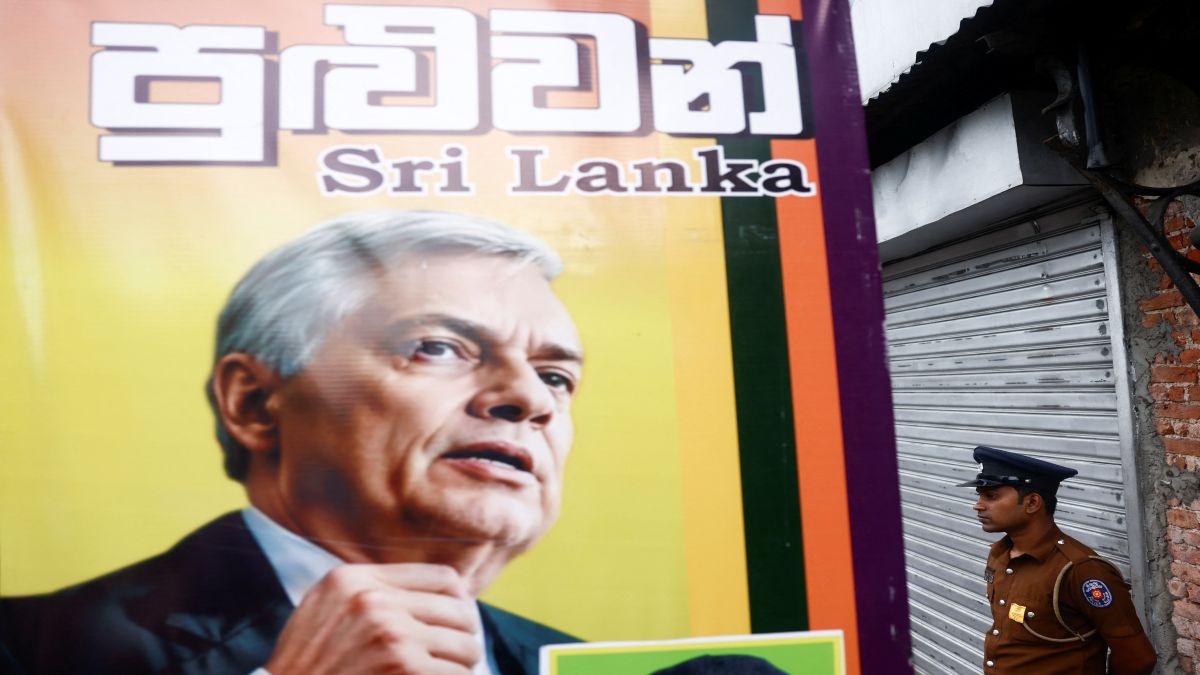Sri Lanka is set to vote for their next president on (September 21) in an election that is being closely watched by the world. The polls also come at a time when the island nation is rebuilding its economy after the economic crisis in 2022.
Ranil Wickremesinghe, the incumbent president of the country is seeking the position of president for the next five years as an independent candidate.
As the country prepares to vote, let us take a look at the key issues that are plaguing the country.
Economy
A critical shortfall in foreign exchange in 2022 pushed Sri Lanka’s economy into the worst financial freefall in decades. While the economy has taken tentative steps towards recovery since last year, there is a lot still to be done.
Inflation has returned to low single digits, there is a surplus in the primary account and tax revenues are higher. The economy is expected to grow 3 per cent in 2024 after shrinking 2.3 per cent last year and 7.3 per cent at the height of the crisis.
Whoever wins the election will have to ensure Sri Lanka gets its economy on a sustainable and inclusive growth path, reassure local and international markets, attract investors and help a quarter of the 22 million population climb out of poverty.
IMF bailout plan
The four-year International Monetary Fund’s bailout programme, secured in March last year, has helped Sri Lanka build up reserves, stem a fall in its currency and tame runaway inflation. It also set the groundwork for Sri Lanka to start debt restructuring talks with its official creditors and bondholders.
Once the debt restructuring is completed, Sri Lanka hopes to reduce its overall debt by $16.9 billion. The debt rework is also crucial for Sri Lanka to reach a 2.3 per cent GDP primary balance target by 2025, the key fiscal target set by the IMF.
Some key candidates have promised amendments to the $2.9 billion IMF programme but missteps in public finances, fixing loss-making state companies and strained foreign exchange reserves could derail the deal.
Tax policies
One key proposal by President Ranil Wickremesinghe, who is running for re-election, is to change personal income tax, currently levied at between six per cent to 36 per cent, to provide relief to professionals. If he wins, the proposal is likely to be outlined in Sri Lanka’s next interim budget expected in November.
Opposition candidate Sajith Premadasa has pledged to lower value-added tax by three per cent, review corporate and vehicle tax and provide tax relief to senior citizens. He has also promised to keep income tax between one per cent - 24 per cent.
Marxist-leaning Anura Kumara Dissanayake has pledged to remove VAT on some health, education and food items. He has said he will discuss with the IMF adjusting their programme to reduce taxes and free up public revenue for tax relief and investment.
Job opportunities
Wickremesinghe has outlined plans to attract investment and improve manufacturing and services to create 100,000 jobs in 2025. Premadasa has pledged to reform labour laws to make Sri Lanka more attractive to investors, connect smaller businesses to markets and liberalise trade.
Dissanayake has promised to revamp state companies to make them more profitable, and create 20,000 new teaching jobs, and create more opportunities in key sectors such as tourism. All candidates have pledged to expand existing welfare schemes for the poor.
Geopolitics
Sri Lanka has sought to balance ties with neighbours India and China, key creditors and investors who are also jostling for geopolitical influence in the small Indian Ocean country.
Japan, India and China are key parties to Sri Lanka’s $12.5 billion debt rework. The main candidates in the election have expressed their intention to continue working with these parties and foster economic ties to boost growth.
With inputs from Reuters
)